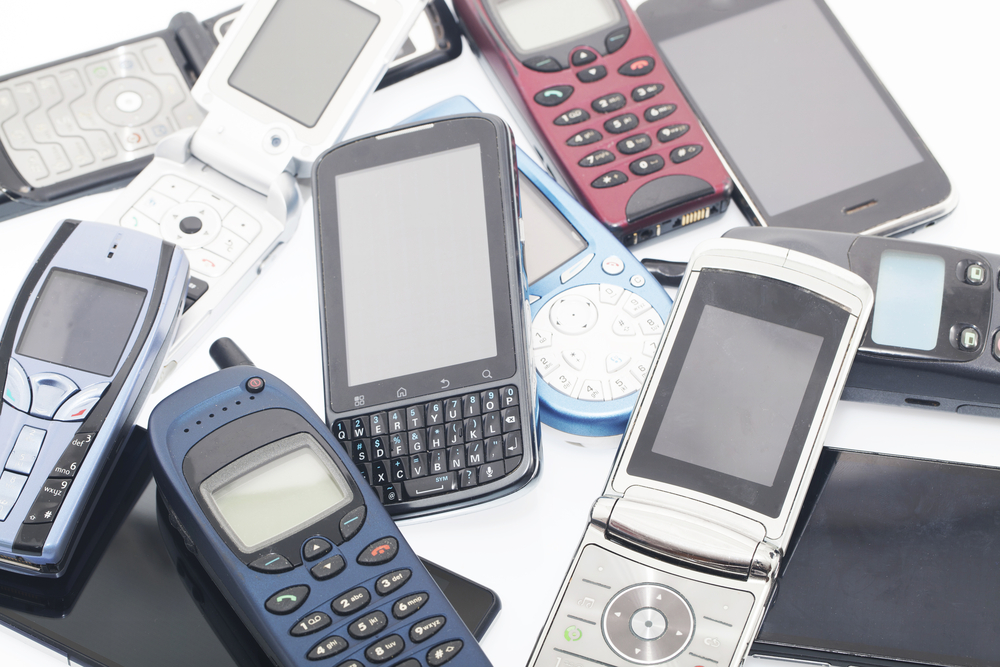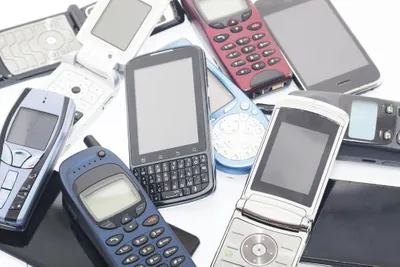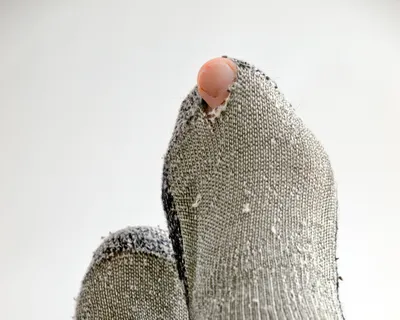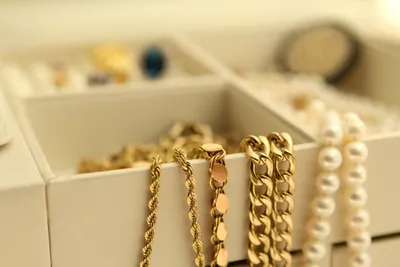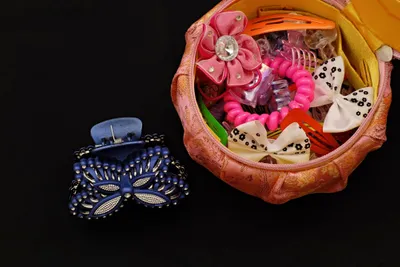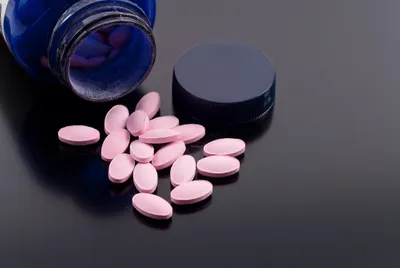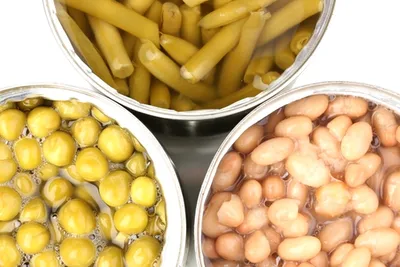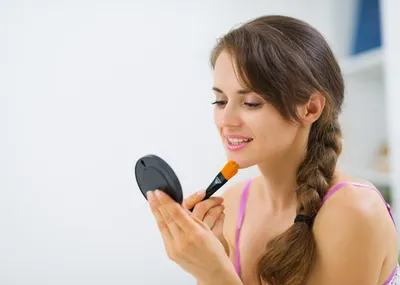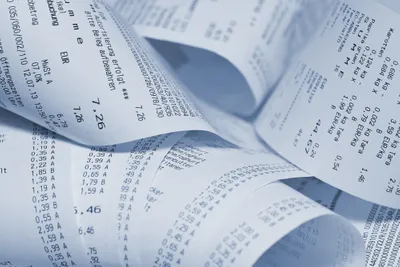Does your living space bring you joy and happiness? Or is it filled with stress-causing clutter? The zen-home movement is all about turning our homes into sanctuaries; places of rest, relaxation and joy and one of the first places to start when looking at your own space is focusing on decluttering.
We tend to accumulate a lot of stuff over the years, some of it we use regularly and some of it may just be collecting dust. If you have a lot of the latter, it could be time to go through those drawers, closets and boxes and finally get rid of all that junk. If you’re not quite sure where to start or what to get rid of first, here are twelve common clutter items that just aren’t worth holding on to any longer…
1. Greeting Cards
It’s always nice to receive a card from someone, whether it’s your birthday, anniversary, new baby…whatever…it’s just nice to know someone is thinking about you. But what do you do with that card after its been opened and appreciated? Many people say they should be thrown out after a certain amount of time (exactly how long is a topic of great debate) but many people keep the cards they receive forever.
While we understand the sentiment behind this, we agree it’s time to send your old cards to the recycling bin. But before you do, make sure they’re completely recyclable. Any fancy elements like glitter, ribbon or foil can’t actually be recycled, but a great way to preserve those memories is to cut out the fancy elements from your old greeting cards and use them for scrapbooking, collages or even better, make them into a new handmade card of your own. Now that’s up-cycling!
2. Old Cell Phones and Accessories
It’s not a bad idea to keep an old cell phone around as a spare (because let’s face it, accidents can happen) but if you have a chronological collection of all your cell phones dating back to that old Zach Morris model, it’s definitely time to do some purging. Or if you have a drawer full of cell phone chargers, cases or other accessories for phones you no longer even have, then it’s really time to do some purging.
Thankfully these days the need for an environmentally friendly recycling option for old cell phones has been acknowledged and there are many companies who can dispose of them properly. Some cell phone companies will even offer you a trade-in for old phones which get refurbished or donated to charity and in return you receive a credit towards a new phone.
3. Spices
If you like to cook or bake, chances are your kitchen’s spice cupboard is probably reaching maximum capacity. After all, every type of cuisine seems to require it’s own unique blend of herbs and spices. But think about how often you use many of them? And just how long have they been sitting in there?
The average shelf life of spices is actually only 12 months, after that, they’re no longer at their peak freshness and will start to lose their flavor. Toss anything ancient but keep any of the glass containers and wash them out for reuse. Many supermarkets and heath food stores now sell bulk spices so you can buy smaller amounts and refill the old bottles.
4. Old Writing Utensils
Every house seems to have it’s own junk drawer, and if yours is like ours, it’s full of old pens, markers, pencils and even crayons. Many of which were ‘borrowed’ from hotels and restaurants during our travels around the world. Half of which probably don’t even work anymore.
No one really needs 30 pens and pencils anyway, so a couple of times a year, go through that junk drawer and test out all your writing utensils. Get rid of any dried out markers and highlighters and any pens that don’t work. If you have old or broken crayons, there are lots of creative ways to put them to new uses or you can even ship them to Crazy Crayons, an organization that takes old donated crayons and recycles them to make new ones.
5. Single Socks
Everyone knows the sock monster. It’s the creature responsible for leaving countless pairs of socks without their mate. The result of these mysterious disappearances is a drawer full of solo socks which just take up valuable closet space, and while we hang on to them with hopes that one day their partner will return, nine times out of ten those prayers go unanswered.
So when looking at where to start clearing out your closet, start with the single pairs of socks. If you don’t want to just throw them out, there are a few ways to put these lonely socks to new use: they make great dust rags, especially for getting into hard to reach places and they’re also great for buffing or cleaning your shoes. Or if you want a fun craft for the kids, try making your own sock puppet.
6. Broken Jewelry
Another great place to look for useless clutter is in your jewelry box. We’ve all got those single earrings we can’t bear to part with, that bracelet with the broken clasp or that necklace that’s missing a jewel. It can be hard to part with jewelry we love, even when it’s broken, but it’s important to think about what purpose it’s serving us now. And if the answer is no purpose, it’s time to get rid of it.
Now we’re not saying you should part with your expensive gold or precious stones (those are definitely worth getting fixed) but if it’s just costume jewelry there are plenty of other things you could do with it. Pinterest is full of ideas like decorating lamps with necklaces and earrings, turning broaches into magnets and even using old necklaces as curtain ties.
7. Magazines and Catalogs
Magazines are great to look through once or twice, but after that they serve little purpose except taking up space on your bookshelf or coffee table. The same goes for catalogs (though these are becoming less and less popular with the growth of digital media.)
Instead of adding to your clutter collection, once you’ve finished with them you could donate them to a hospital or seniors center. Patients and seniors will usually appreciate some new reading material, or you can give them to friends, or if all else fails, send them to the recycling bin. Thankfully they’re paper and they can be recycled pretty easily.
8. Old Hair Accessories
Every girl keeps a sizable stash of hair accessories, and the collection only seems to grow and grow as the years go by. But if you haven’t gone through your collection in a while you might be surprised what’s actually usable anymore. Rusted bobby pins, clips with broken teeth and stretched out hair elastics are probably taking up space and adding to the clutter of your life.
If you’re really keen, you can actually soak those rusted metal hair accessories in white vinegar to remove the rust, but anything broken is probably just better off in the bin. If you have working hair curlers or straighteners that you no longer use, these can be donated to your local consignment shop while broken ones can be recycled anywhere that accepts small appliances.
9. Expired Medication and Vitamins
Expired vitamins, supplements and medications are another common household item that’s likely cluttering your bathroom cupboards, and having these items just sitting around can pose a potential health hazard in a couple of different ways. First of all, there is the risk of someone getting their hands on expired medications and pharmaceuticals and using them for recreational purposes. America has seen a dramatic increase in deaths related to prescription drug abuse over the last 10 years so it’s important to make sure these medications are properly disposed of.
You should only ever flush prescription pills or supplements down the toilet if there are specific instructions to do so. Flushing pills down the toilet can cause major environmental problems as it contaminates our water supply with potentially harmful chemicals. The American Environmental Protection Agency recommends that prescriptions or vitamins be dissolved in warm water and then mixed with an undesirable substance like kitty litter or coffee grounds to prevent children or animals from getting them after they’ve been put in the trash.
10. Frozen and Canned Foods
If you have a large freezer or pantry, it’s probably worth taking a look at what you have been storing to see if any purging can be done. Freezers can be a hot spot for excess and waste, especially since it’s hard to see what’s hidden deep inside of them. It’s good to sort through your pantry every three months or so to make sure you’re rotating cans and using them before their expiry date.
If you do find expired foods, make sure you dispose of them properly; open cans and empty out old food into the garbage or compost and then rinse the can so it can be recycled. If you have a large freezer, do a full clean out every 4 months or so. Get rid of anything that’s old, freezer burnt or can’t be identified.
11. Old Makeup and Beauty Products
Like old hair accessories, women especially tend to accumulate a lot of make up and beauty products over the years. So if you’ve had the same eye shadows or lipsticks for years, or you’re holding onto smashed eye shadows or broken face powders, it’s time to do some purging.
Many people don’t realize that make up should actually be replaced every few months, especially for things like mascara and face make up which can develop bacteria from frequent use. We recommend going through your make up and beauty products at least once a year and getting rid of anything old or expired.
12. Old Bills and Receipts
The last place we recommend taking a look at for reducing clutter for a healthy living space is your files. It’s all too easy to accumulate old bills, receipts and other paper documents that we think we need to keep, but the truth is we could do just fine with less.
These days most appliance manuals can be found on manufacturers websites so these can go in the recycling bin, as can all your monthly bills for the year unless you plan on writing them off at tax time. Any medical bills that have already been paid out by your insurer are no longer needed but make sure you keep any important legal documents and tax returns less than seven years old. With privacy and forgery being a major concern these days, make sure that anything you dispose of gets put through a confetti shredder to make sure your personal information is safe.
